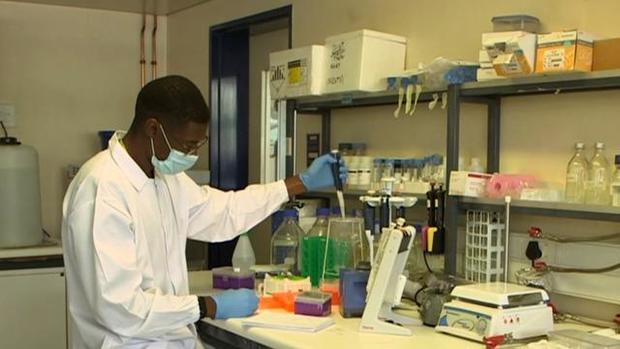New Zealand’s 1st new community COVID case in months is variant from South Africa
[ad_1]
Wellington, New Zealand — New Zealand’s first case of coronavirus in the community for more than two months has been identified as the more contagious South African variant, prompting Australia to suspend quarantine-free travel from the neighboring country for at least 72 hours.
A 56-year-old New Zealander, who recently returned from Europe, tested positive on Saturday for the infectious strain, 10 days after she completed her compulsory two weeks in isolation.
New Zealand has been widely praised for its handling of the pandemic, with just 25 deaths from 1,927 confirmed virus cases in a population of five million.
The latest case is New Zealand’s first in the community since mid-November and has been classified as a strain said to be more transmissible, and possibly resistant to the COVID-19 vaccines currently being rolled out around the world.
CBS News
“The strain of infection is the South African variant and the source of infection is highly likely to be a fellow returnee,” said Health Minister Chris Hipkins.
Australian Health Minister Greg Hunt said it was a case of “significant concern” and the increased possibility of transmission had prompted his government to suspend its “travel bubble” with New Zealand for a minimum of 72 hours.
“This will be done out of an abundance of caution whilst more is learnt about the event and the case,” he told reporters in Canberra.
“The changes come into effect immediately.”
Hunt urged New Zealanders with a flight to Australia scheduled within the next three days to “reconsider their need to travel” as they will have to go into hotel quarantine — like other international arrivals — for up to 14 days on arrival.
The woman is thought to have been infected during quarantine by a person on the same floor of the hotel who tested positive two days before the woman left.
Peter Meecham/AP
The 56-year-old traveled around the Northland region near Auckland after her release from quarantine and showed symptoms for several days before being tested.
Two people close to her, including her husband, have since returned negative tests and New Zealand’s director-general of health Ashley Bloomfield said they likely avoided contracting the illness due to the type of infection.
“She didn’t talk about respiratory symptoms, it was more muscle aches, so she may not have been sharing or spreading the virus much,” he said.
“I don’t think that’s peculiar to this variant, it’s just how it was expressed in this woman.”
The World Health Organization has said there is no clear evidence the South African variant leads to more severe disease or a higher death rate, but researchers at the country’s main government laboratory have told CBS News it does appear highly resistant to the antibodies created by previous infection with the original strain of the coronavirus.
That’s fueling fears that it could be resistant to the current vaccines, which rely on antibodies to prevent serious infections with the disease.
Another strain of the coronavirus, first detected in southern England and already spreading much faster around the world than the South African variant is believed to be, may be more lethal, the British Prime Minister said on Friday.
[ad_2]
Source link












